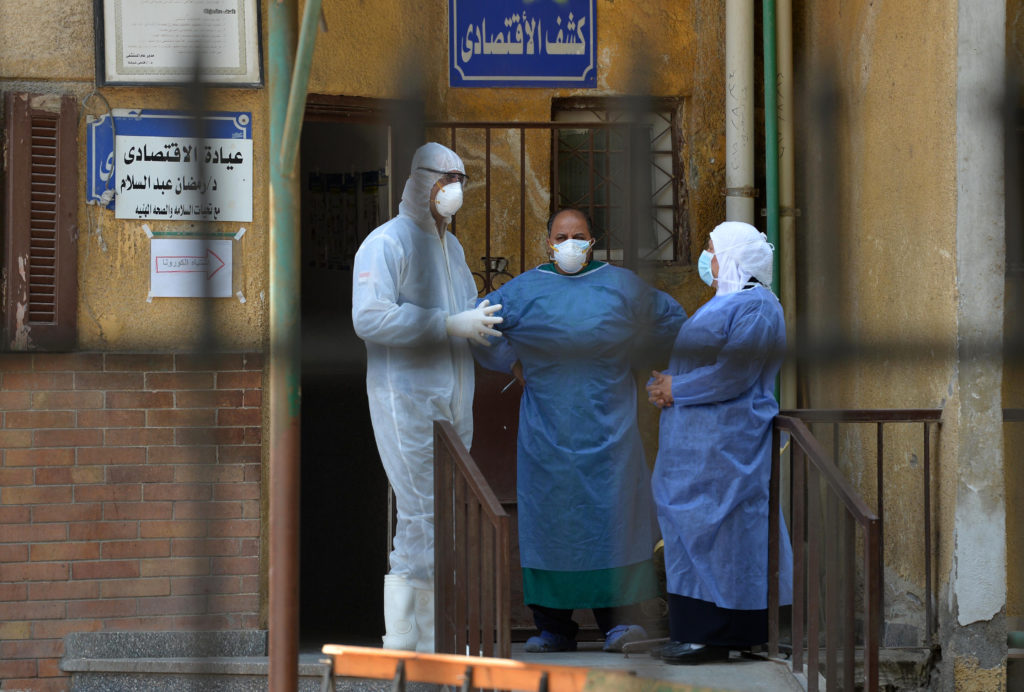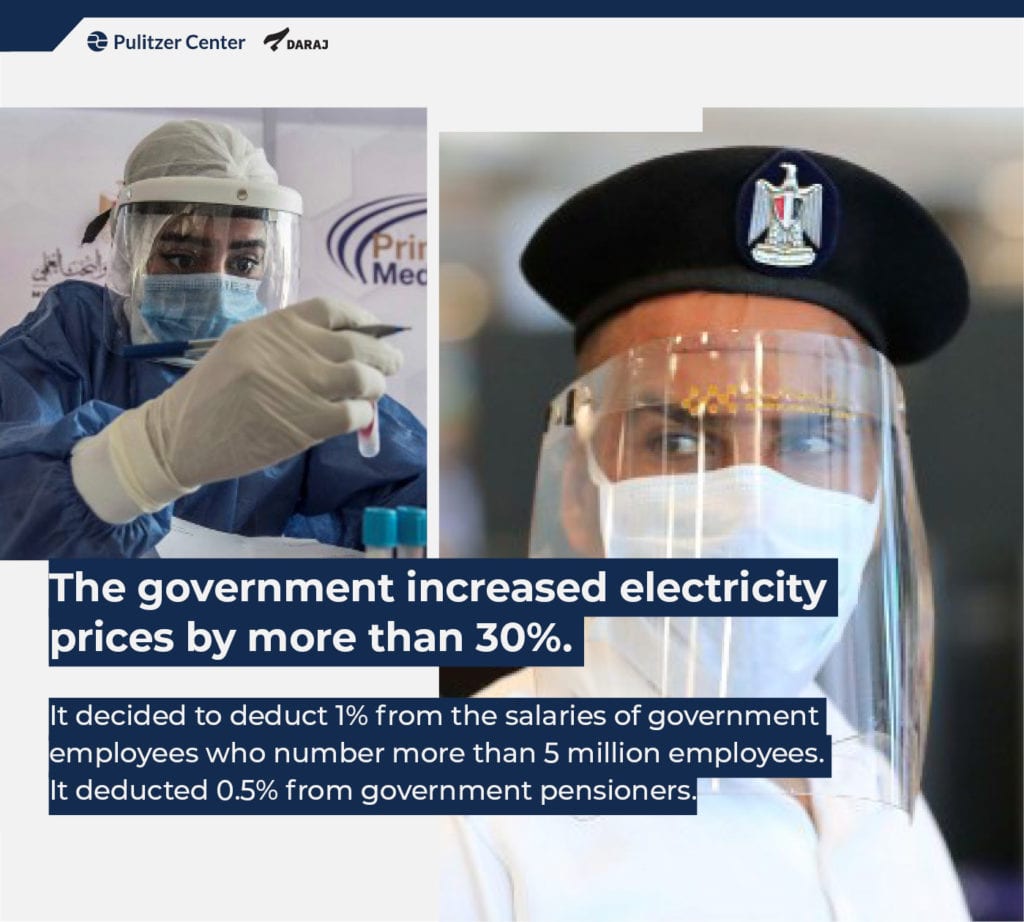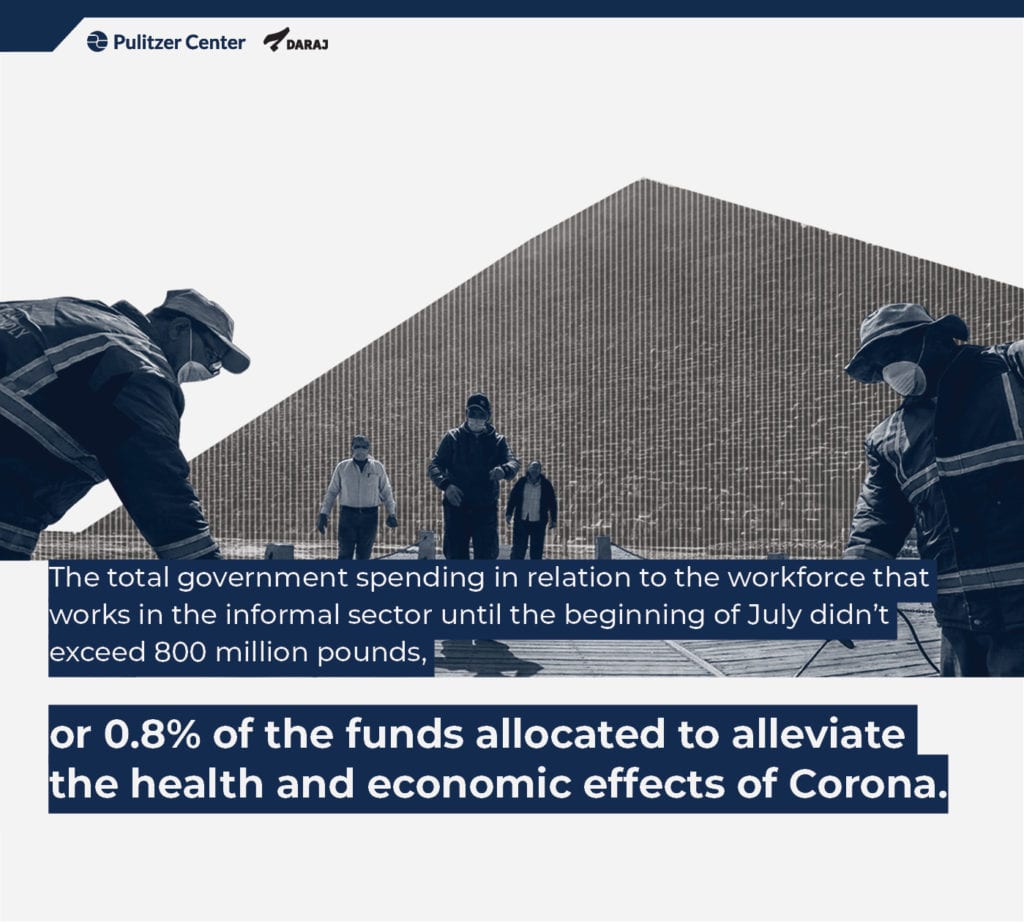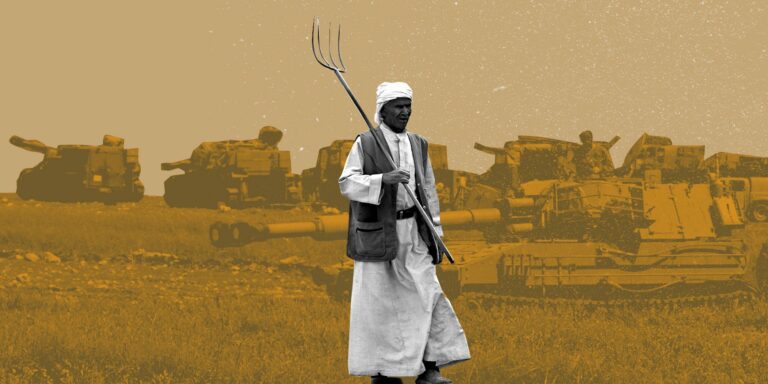This article has been prepared in cooperation with Pulitzer Center.
By early July, over 3500 Egyptians fell to Covid-19 while more than 75,000 people had been infected according to official figures. The infamous Corona curve has not plateaued yet. Total number of reported cases has been doubling every two to three weeks since late April when the Ministry of Health claimed that less than 6,000 people carried the deadly virus. With extremely few tests offered, Egypt occupies the 176th position on a list of countries in terms of tests undertaken. At 1.3 tests per 100,000 people, it is the worst in the region in terms of testing, followed only by Sudan and Yemen. This makes it almost impossible to ascertain a more realistic picture of how Covid-19 afflicted Egypt. A government minister claimed the real numbers were probably five times as many, which would push Egypt from the 103rd worst hit country in terms of deaths to the 28th rank. In late June, a survey, that had to be sanctioned by the government under the law, claimed that over 600,000 Egyptians could have contracted the virus (that is about 1% of the Egyptian population over 18 years).
The model-based contradictory numbers or the blatantly low government figures that suffer from relatively very low tests affect any open public debate, an exercise that is difficult to start with in Egypt in the increasing absence of independent media and restrictions over freedom of expression since 2014. Egyptians expectedly resort to direct experience, anecdotes and hearsay to make sense of what is going on and how to cope with it.

The way Egypt was hit by the Corona virus, the way it handled it, and how government, civil society and the private sector interacted has accentuated a deeper malaise; it is a malaise that has long afflicted this country and is probably more harmful in the long term than the menacing virus. A toxic mix of authoritarianism, incompetent bureaucracy, poverty and predatory market practices, had already eviscerated a country and made it very vulnerable to shocks.
By mid 2020, the pandemic has left most Egyptians, probably including government officials, counting more on divine intervention and what has been destined by fate, rather than government policies and market responses. Social solidarity and initiatives by small organizations, loose social networks, and neighbourhood and village communities helped a lot but social stigma, selfishness and fear smeared these altruistic drives as infected individuals were shunned even as corpses seeking burial due to ill-informed fears of contracting the virus.


Government Policies: An Example in Confusion
By late June, the Egyptian government has but completely let go of faltering attempts at imposing partial curfews, rules for social distancing and restricted movement. Not that whatever it decreed in fits and starts since late March had been seriously enforced or observed except for freezing air travel.
After an initial reluctance, probably out of a desire not to spoil the tail end of the tourism seasons, the government shifted gears in the second week of March and started looking at serious public health measures. In the following week, it drastically restricted public gatherings, closing down schools, mosques, churches, cafes, restaurants and sports clubs, among other measures. Sources claim that the death of senior army officers in Cairo because of the virus and the dramatically increasing case load as well as dire warnings by the World Health Organization were behind this shift.
The way Egypt was hit by the Corona virus, the way it handled it, and how government, civil society and the private sector interacted has accentuated a deeper malaise;
President Abdel Fattah Al Sisi earmarked 100 billion Egyptian pounds (USD6.4 billion) to alleviate the economic impact of Covid-19 and provide for additional public health measures. In late March, the government imposed a curfew from 7pm till 6am.
Even Government critics were impressed by the successive measures — a little late but comprehensive. Then in the following weeks, it became clear that authoritarian orders were issued without proper consultation, public health plans were drawn up by technocrats without ensuring that the resources were available, and a recalcitrant private sector declined or could not share the huge costs of the pandemic either in public health measures or in slowed down productivity.


But What is Really Happening?
People who do not usually confide in government nor in the controlled media started to gather information from social media and peers. Those who could not afford to socially distance themselves or did not take the whole issue seriously tried to carry on with their lives especially people who needed to work and relied on daily wages.
It did not help that by late April, the government started to vacillate in measures and messages, moving from asking people to stay home and wear masks, to ordering construction companies to go back to work; and from declaring a strict curfew to a lax implementation and then shortening the hours to allow more social gatherings during Ramadan. Through all of it, the packed cars of the Cairo metro system continued to ferry over 3.5 million people every day, literally breathing down each other’s necks.
Even the 100-billion-pound stimulus package was largely divided up among big business sectors such as tourism, banking, and construction in the form of loan rescheduling, discounts on energy consumptions, or even direct subsidies as in the case of exporters. In a country where as many as 40% of the labour force works in the informal sector lacking contracts or social security, the government only decided to make one time hand-outs of USD34 to informal workers who have to register themselves online. After two months, about 4.4 million people registered for this grant but only 1.6 million were seen as eligible by the government to benefit from this ‘largesse’. The government bill by early July for this specific measure did not exceed 800 million pounds or 0.8% of the funds it has allocated to alleviate the health and economic impact of Corona.
A study conducted by the Centre for Egyptian Women’s Legal Assistance (CEWLA), found that only 8% of the women who applied for this small handout got it, despite the fact that nearly 58% of the women surveyed in several urban slums in Cairo lost their jobs and a majority of those who stayed employed suffered salary cuts.
A woman told CEWLA in a Cairo slum in June that they had been confused by government announcements, “and now we do not know whether they want us to stay home or go out. They have to decide and tell us how they will implement these decisions and what measures they will take to save the poor.” And the poor have had a really hard time since March having to resort to desperate coping mechanisms. One of them told CEWLA that she is saving the transport cost of nearly 50 US cents a day by walking to and back from work.
But even when the government declares a decision, it does not mean, it will follow through. In April, the government promised to pay extra money for poorly paid doctors who agree to work in hospitals where Covid-19 cases are being confined. Weeks later, it reneged on a promise of US$1250 per doctor for each two week stay at these hospitals. After toing and froing, it paid much less. Finally, the government ended up criticizing medical professionals when Prime Minister Mostafa Madbouli alleged that their absenteeism cause increased infections and death. The doctors’ union was livid as the virus had killed nearly 200 medical professionals while 3000 more were infected. Doctors and nurses had long complained about the lack of personal protection equipment, ICU, long hours, and low salaries badly hit by inflation. At least eight medical professionals were arrested for voicing their criticism over social media platforms and charged with abetting terrorism, spreading false news and abusing social media platforms.
With such huge risks to speaking openly about the pandemic especially when it comes to government policies, and expenditure, people have been kept in the dark in a country whose media is now almost exclusively run by government or pro-government entities; the government also lacked any serious feedback about its policies, and, thus mistakes were covered up or went unchallenged.
This is hardly surprising from a government that has ignored a constitutional obligation to dedicate 3% of the GDP for the health budget. Since the new constitution was passed in 2014 following the removal of the Muslim Brotherhood from power, this ratio never exceeded 1.81% and is scheduled to be 1.37% in the fiscal year 2020/2021. Meanwhile, the government continued removing subsidies on power putting more pressure on the poor. In July, the government raised the electricity prices by up to 30% and decided to deduct 1% from the salaries of the over five million government employees and 0.5% from government pensioners. This came at a time, the government had agreed on additional loans from the World Bank and the IMF and the international debt market totaling USD13 billion, bringing the overall foreign debt to over USD120 billion. Meanwhile, the same government is negotiating to purchase two FREMM naval frigates for USD1.35 billion from Italy.


The measures to increase government revenues and reduce expenditures were so warped and revealed clear biases favouring narrowly defined national security interests, the big business and fiscal measures meant to ensure a good position in the world debt market.
Meanwhile, people resorted to more desperate measures. CAPMAS, the government agency for statistics, admitted in late June how serious the impact had been for many Egyptians, over 73% of whom suffered an income loss while 26% lost their jobs. Half the families polled fell into debt and an additional 17% resorted to charities and seeking alms while only 5.4% benefited from the government grant.
To fill up these wide gaps in available or affordable health services, Egyptian charities operating as civil society organizations stepped up to help thousands of poor COVID-19 victims who needed hospitalization. Organizations like Mersal and January 25 hospital provided diagnostic services, treatment, medicine and hospitalization to many who could not reach government services or afford the private sector.
Fatalism and Conspiracies:
With chaotic state policies, censored or media, and an inadequate health care infrastructure at best, many Egyptians were left with one coping mechanism: fatalism, indifference, and blaming the debacle on a vague foreign conspiracy against the homeland.
Like many Americans who testified in a public hearing in Palm Beach few days ago on how the whole Covid-19 health crisis was a big conspiracy hatched by no less than the devil itself, some Egyptians thought the pandemic was a global conspiracy involving chemical weapons laps, China-US undercover war, big pharma machinations, etc. An Egyptian American who got millions of views for a video she posted on her social media account, where she screamed at her fans “Shame on you” as she threw away her US passport alleging that US media have been ordered to frighten the people because Trump wanted to play tough with China. “He provoked china with the corona, but China is ahead of us because they worked in silence, they have the vaccine but this has not been published because the orders are that we all should remain afraid while greedy merchants stand to profit? America is seizing the opportunity and wants to cash in from all of you, go back to the Quran, oh Egyptians, and pray.” Unsurprisingly this woman used to own a restaurant in Florida before it went bankrupt several years ago.
It is not decreasing revenues and economic downturn that could explain all these contradictions and confusion but rather whimsical decision making in an opaque process by a small group of policy and decision makers trying to please certain clashing state and market forces without any meaningful accountability to the people at large. These decisions and practices are not subject to a serious debate by the existing weak parliament, nor the censored and faltering media, nor even on social media platforms where a critical post can land one in prison
Egypt authoritarian-led, technocracy-dominated measures were not even efficiently implemented, resorting more often than not to coercion and repression.
In such an environment, it seems that fatalism and risky behaviours are probably the rational way to go for many Egyptians. Asked whether he follows up the official health recommendations on social distancing, Mohammad Imran, a street vendor selling bags and shoes in a crowded street market in downtown Cairo, summed it up to MadaMasr in an irritated tone: “the government told us to co-exist with Corona and we will all meet our fate.”






